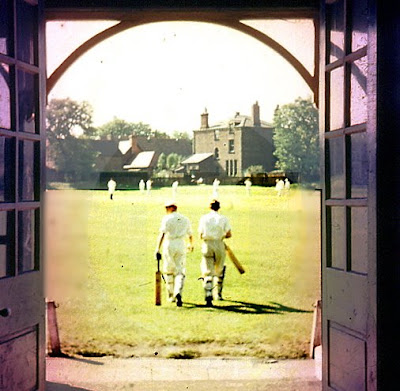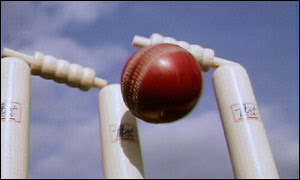Sometime ago, I found myself standing in a Philadelphia park with a grizzled old black ex-cop.
We were watching a cricket match and I was struggling to explain the rules of this complex and absorbing English sport.
He said, without irony, still chewing on his cocktail stick, “Well, I’m stumped.”
He said that he thought it was crazy that a nation, even England, could love anything so obscure and so dull.
Earlier that year I had been in Los Angeles where the American playwright, Neil Simon, took time to explain to me his passion for baseball.
We were in a burger bar eating “Neil Simon Burgers” – I thought that was pretty cool but Neil Simon just shrugged.
He was in mid-sport explanation mode and he had long left me drifting out at sea. I wish now that I had heard that Philadelphia cop’s impromptu remark because I should have told Mr. Simon that I too was “stumped.”
When we actually went to a game, I have to confess that I enjoyed the atmosphere but my mind wandered after I first thought someone had scored only to find that he was out.
I suspect that most Americans watching the traditional English game of cricket feel just the same.
Cricket in Philadelphia seemed odd to me when I was there in 1995. I assumed it was the result of some enthusiastic ex-pat Brits. So it was, in 1854, when some English students at the University of Philadelphia set up the Philadelphia Cricket Club.
When I saw this match though it was a low-key local affair with a totally Afro-Caribbean team – the product of the more benign legacy of British Imperialism. I suspect that the players were not part of the historic club but I am not sure of my facts here.
I see that nowadays, the Philadelphia Cricket Club is a prosperous country club mostly specialising in the ghastly game of golf and also some distinguished tennis. A cricket team has been revived but I am still not sure whether this is the same team as the lusty and energetic one I saw in the park that day, which had none of the pomp and circumstance that the PCC’s website has today.
I did go to an exclusive Philadelphia country club on that trip but the only black faces there belonged to the smartly dressed waiters who served us lunch. I hope that has changed but I doubt it. If anyone knows anything about this I would love to hear from you.
So why the cricket reminiscences, you may wonder.
In England right now we are midway through the so-called “Ashes” series which is a traditional but not entirely serious grudge match between two cricket-mad nations – England and Australia. The “ashes” are supposed to be the cremated remains of either a stump or a bail which had been in use when Australia beat England at a match in 1882 which the English newspapers branded as the death of English cricket. It has been fought over ever since.

If you don’t know what stumps and bails are then you are not alone – they are the three upright sticks in the ground and the two little ones that sit on top of them. You are stomped if you are batting in front of them and the bowler hits them. If only they had them in baseball then I might understand it better.
Like all English schoolboys I played cricket as a child and even though I was never any good at it, my school thought it was a good thing for me to play it every day during the summer. I am not sure that they were right but there you go.
Like it or not, it is ingrained in me, the much celebrated sound of leather ball and willow wood coming together in pitched battle, the smell of linseed oil and the silence of those hot dusty cricket pavilions when, match over, the cricket bats stood in rows waiting for another day.
Summers are still illustrated for me by men in white on luscious green grass pitches- matches where external time stands still and the protracted world of cricket time with its drama and strategy takes us out of the business-like seasons of Spring, Autumn and Winter.

As I said though, I was no good at it – no good at all.
Usually I was posted to a position called Long Leg which was as far away from the action as it was possible to get – usually by a bed of stinging nettles which attacked me every time I failed to stop the ball.
Batting was easy – a long walk to the stumps, an attempt at a hit, the sound of those stumps ripped out of the ground and then the long walk back.
Cricket for me was really free time. Every summer afternoon in a boarding school with strict rules and timetables, I could stand there by the nettles or lie down by the pavilion and dream of other things. The deal lasted throughout my childhood, all I had to do was pretend that I cared which team won.
For all that, I am still drawn to the game and, if I wasn’t already addicted to too many epic pastimes – Wagner, Martial Arts and Life – then I would probably be glued to the match right now.
I wasn’t a total failure at school cricket though.
As time went by I found my vocation.
First as the scorer – the keeper of the book and the annotator of each move – and then, to many players’ annoyance, as a schoolboy umpire.
Revenge? What do you think?




